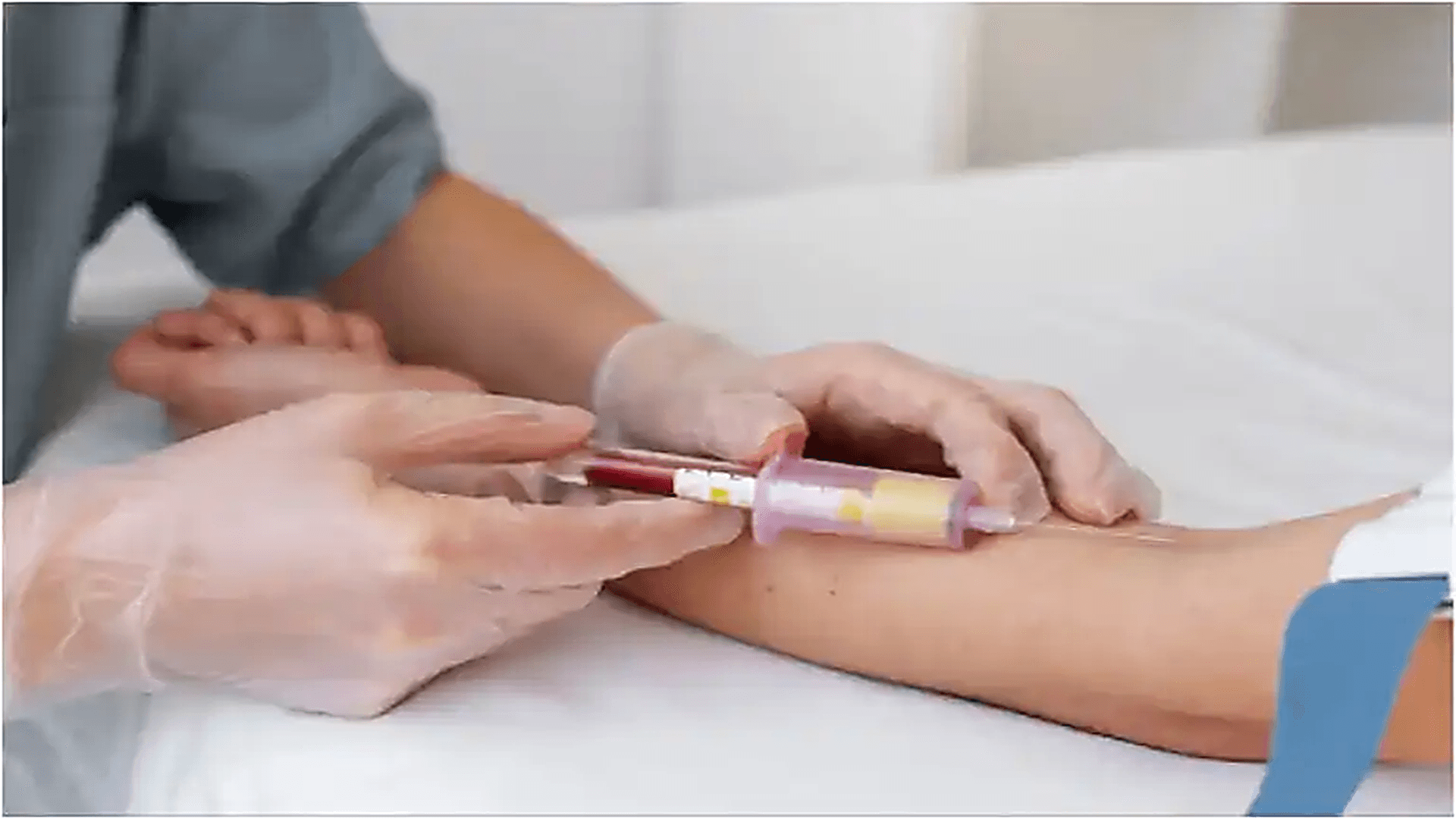Introduction
If you’re looking for a quick way to start working in healthcare, phlebotomy might be the perfect first step. With the NHS currently having around 100,000 job openings in clinical services, support roles like phlebotomists are becoming more in demand. This is because the population is aging, and more people require medical care.
In this guide, you’ll find out what phlebotomists do, what qualifications you need, how much you can earn, the essential skills required, and where this job can lead.
What Is A Phlebotomist?

A phlebotomist is a trained professional who collects blood samples from patients when requested by doctors. These samples are tested in labs to check for health problems. They may also collect blood for donations, transfusions, or medical research.
Phlebotomists work in various healthcare settings, including NHS hospitals, GP surgeries, private clinics, testing laboratories, and blood donation centers.
As a phlebotomist, your job is to collect blood samples from patients to help find out if they have any health problems. These samples are used for different types of blood tests, each made to check certain parts of a person’s health. Common tests include:
-
Complete blood count (CBC)
-
Basic metabolic panel (BMP)
-
Lipid panel
-
Blood sugar test
-
Liver function tests (LFTs)
-
Thyroid function tests
-
Blood clotting tests
The most common blood test is the Complete Blood Count (CBC). This test assesses a person’s overall health and can detect problems such as infections, cancer, or anaemia.
As a phlebotomist, you play a crucial role in the testing process. You check patient details, confirm who they are, and explain the procedure to make sure they understand and agree. You also help patients feel comfortable while following health and safety rules.
Your duties include choosing the right needle and tubes, finding a good vein, drawing blood safely, stopping any bleeding, and correctly labelling samples. You may also need to record the details in the patient’s file.
Discover the proven method to become a certified Phlebotomist in the UK in just 4 days. Click here to learn the fastest, easiest way to start your healthcare career!
How To Become A Phlebotomist In The UK?
To become a phlebotomist in the UK, you need the proper training, and having experience in taking blood will really help you get a job. Additionally, most employers prefer candidates who hold GCSEs, can communicate clearly, and are kind and understanding with patients. Let’s explain more.
What Qualifications Do I Need?
To be a phlebotomist, you need basic reading, writing, and number skills, along with proper training to learn the correct methods. Usually, employers want you to have at least 2 GCSEs, especially in English and Maths.
To stand out from other candidates, it’s a good idea to complete a trusted and approved introductory phlebotomy training course in the UK. The Phlebotomy Training Institute offers this training in five easy-to-reach places: London, Birmingham, Bristol, Swindon, and Cardiff.
This beginner course gives you the main knowledge and skills you need to safely and correctly draw blood.
However, since taking blood is a sensitive medical task, most employers in the UK, especially those in the NHS, prefer individuals who also hold a Certificate of Competency.
You can get this certificate by finishing an advanced phlebotomy training course. One significant advantage of this course is that after you pass, you’ll also get a Letter of Recommendation from your trainer.
These two documents prove you can do the job well and significantly increase your chances of getting hired.
Gain Phlebotomy Work Experience
Having some job experience is a significant benefit. It shows you know what you’re doing and are confident in your role.
If you don’t have experience yet, look for trainee phlebotomist jobs at local clinics. You can also volunteer or work as an apprentice at a nearby blood donation centre. Once you start working as a trainee, you can also join the National Phlebotomist Register to improve your professional image.
How Much Do Phlebotomists Make?
On average, phlebotomists earn around £25,413 per year in the UK. Your salary may be different depending on where you work. Finishing your phlebotomy training in London or other big cities and working in busy areas might help you earn more.
What Skills Do Phlebotomists Have?
Phlebotomists use both technical (hard) and people (soft) skills. The technical part includes drawing blood, while the people skills help you deal with patients. These skills include:
-
Clear communication to explain what you’re doing and understand patient concerns
-
Empathy to comfort patients who are nervous or scared
-
Patience when working with worried or upset patients
-
Being careful and accurate with labelling and recording
-
The skill to draw blood with little or no pain
-
Ability to properly check patient identity and match the right samples
What Are The Career Progression Opportunities For A Phlebotomist?
There are numerous career paths available to phlebotomists. With time, you can move into roles like lead phlebotomist, lab assistant, clinical research, or even start training in nursing. Keep in mind, you’ll need extra training for some of these paths. Some job options within phlebotomy include:
-
Clinical Phlebotomist
-
Mobile Phlebotomist
-
Research Phlebotomist
-
Blood Donor Phlebotomist
Discover the inspiring story of Loren Allred’s husband, her musical journey, and the key milestones that shaped her most successful life.
Final Thoughts
A phlebotomist is a healthcare worker who collects blood from patients. The blood is tested in labs to help find out what illnesses a patient might have.
To become one, you’ll need the proper training from a trusted institute. Getting real experience as a trainee will also help you get a job more easily.
If you work in bigger cities like London, you may be paid more. A good phlebotomist requires both interpersonal skills and technical expertise. Over time, you can grow into senior roles or move into a more focused area of healthcare.
FAQs: Phlebotomy Career
What does a phlebotomist do?
A phlebotomist collects blood samples from patients to help doctors check for health problems.
Where do phlebotomists work?
They work in hospitals, GP clinics, private health centres, labs, and blood donation centres.
What qualifications are required to become a phlebotomist in the UK?
You need basic reading, writing, and math skills (usually 2 GCSEs) and a phlebotomy training course. Many employers also want a Certificate of Competency.
How can I get experience as a phlebotomist?
You can start as a trainee or volunteer at local clinics or blood donation centres.
How much do phlebotomists earn in the UK?
On average, phlebotomists earn approximately £25,400 per year, but this figure can be higher in major cities like London.
What skills are required to be a successful phlebotomist?
You need good communication, patience, care when drawing blood, attention to detail, and empathy for patients.
Can I grow my career after becoming a phlebotomist?
Yes, you can move up to lead roles, work in labs or research, or train further to become a nurse or other healthcare worker.
Is phlebotomy a good job for people new to healthcare?
Yes, phlebotomy is a good way to start a healthcare career because it requires less training and has many job openings.




